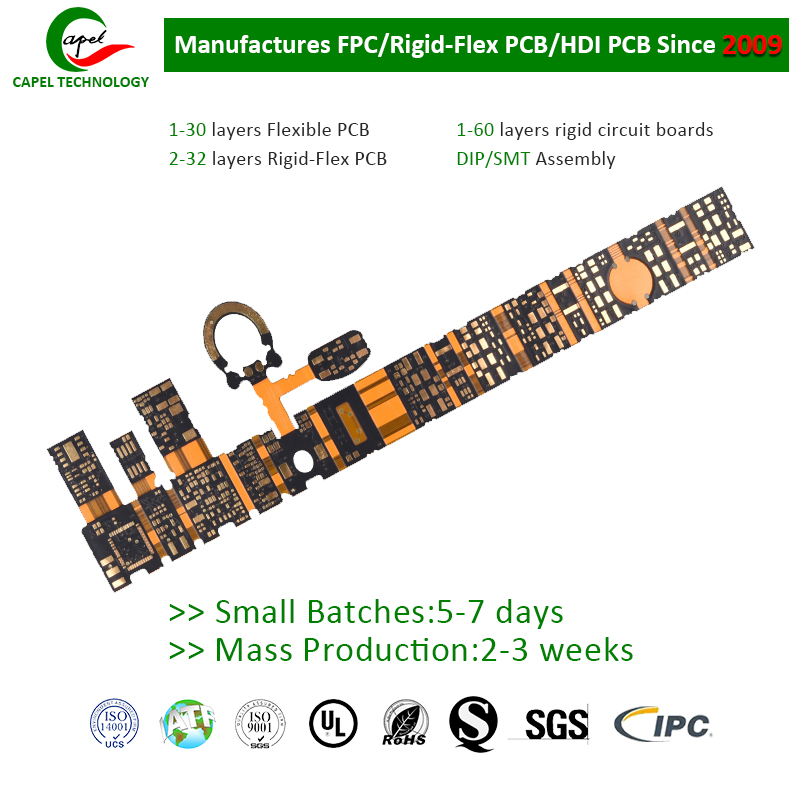Are you facing thermal expansion and thermal stress issues with double-sided PCBs? Look no further, in this blog post we will guide you on how to solve these problems effectively. But before we dive into the solutions, let’s introduce ourselves.
Capel is an experienced manufacturer in the circuit board industry and has been serving customers for 15 years. It has its own flexible circuit board factory, rigid-flex circuit board factory, smt circuit board assembly factory, and has established a good reputation in the production of high-quality mid-to-high-end circuit boards. Our advanced imported fully-automatic production equipment and dedicated R&D team reflect our commitment to excellence. Now, let’s get back to solving the problem of thermal expansion and thermal stress on double-sided PCBs.
Thermal expansion and thermal stress are common concerns in the PCB manufacturing industry. These problems arise due to differences in the coefficient of thermal expansion (CTE) of the materials used in the PCB. When heated, materials expand, and if the expansion rates of different materials vary significantly, stress can develop and cause PCB failure. To resolve such issues, please follow these guidelines:
1. Material selection:
Select materials with matching CTE values. By using materials with similar expansion rates, the potential for thermal stress and expansion-related problems can be minimized. Consult with our experts or consult industry standards to determine the best material for your specific requirements.
2. Design considerations:
Consider PCB layout and design to minimize thermal stress. It is recommended to keep highly heat-dissipating components away from areas with large temperature fluctuations. Properly cooling components, using thermal vias, and incorporating thermal patterns can also help dissipate heat efficiently and reduce stress.
3. Layer stacking:
The layer stackup of a double-sided PCB affects its thermal behavior. A balanced and symmetrical layup helps distribute heat evenly, reducing the chance of thermal stress. Consult with our engineers to develop a layup to address your thermal expansion issues.
4. Copper thickness and wiring:
Copper thickness and trace width play a vital role in managing thermal stress. Thicker copper layers provide better thermal conductivity and can reduce the effects of thermal expansion. Likewise, wider traces minimize resistance and aid in proper heat dissipation.
5. Selection of prepreg and core materials:
Select prepreg and core materials with CTE similar to the copper cladding to minimize the risk of delamination due to thermal stress. Properly cured and bonded prepreg and core materials are critical to maintaining the structural integrity of the PCB.
6. Controlled impedance:
Maintaining controlled impedance throughout the PCB design helps manage thermal stress. By keeping signal paths short and avoiding sudden changes in trace width, you can minimize impedance changes caused by thermal expansion.
7. Thermal management technology:
Applying thermal management techniques such as heat sinks, thermal pads, and thermal vias can help dissipate heat effectively. These technologies enhance the overall thermal performance of the PCB and reduce the risk of thermal stress-related failures.
By implementing these strategies, you can greatly reduce thermal expansion and thermal stress problems in double-sided PCBs. At Capel, we have the expertise and resources to help you overcome these challenges. Our team of professionals can provide valuable guidance and support at every stage of your PCB manufacturing process.
Don’t let thermal expansion and thermal stress affect the performance of your double-sided PCB. Contact Capel today and experience the quality and reliability that come with our 15 years of experience in the circuit board industry. Let us work together to build a PCB that meets and exceeds your expectations.
Post time: Oct-02-2023
Back







